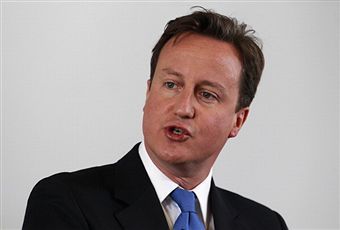 The Big Society was dealt another blow with the resignation of Lord Wei yesterday. Sceptics will see this as a vindication of the concept’s problems. Most people,
however, won’t notice that he has gone. The debate about the Big Society has long since become an elite sport, a jousting match between a determined promoter — the Prime Minister — and
equally determined detractors in the media. Most people don’t care, and it won’t help or hurt the Tories at the next election.
The Big Society was dealt another blow with the resignation of Lord Wei yesterday. Sceptics will see this as a vindication of the concept’s problems. Most people,
however, won’t notice that he has gone. The debate about the Big Society has long since become an elite sport, a jousting match between a determined promoter — the Prime Minister — and
equally determined detractors in the media. Most people don’t care, and it won’t help or hurt the Tories at the next election.
That’s a shame. For the Tories could use a positive post-Thatcher narrative about their administration. They may not need it if the country returns to economic growth. But they might.
However, the Big Society never worked for a number of reasons. The cleverness of the juxtaposition between a “small” state and a “big” society helped the Tories in opposition but has hurt them in government, especially as they started explaining the idea in terms of voluntary action, which made them vulnerable to NGOs opposing deficit reduction. The PM should probably have called the idea “Your Society” not the “Big Society” — much harder to knock.
The Tories should probably also have been clearer that the Big Society was not a programme — and not exclusively or even predominantly about NGOs — but a way to conceptualise the kind of place Britain would become if a range of policies were enacted. Policies on decentralisation, empowerment, etc. Like a happy society is a product of many factors — growth, health, peace — so a big society is shaped by many things, not one or two programmes. Explaining it this way may never have persuaded the professional Big Society critics, Labour MPs, quangocrats and columnists, but it would have been more honest.
The PM is clearly not about to abandon the idea, but he could improve it were he to use Nat Wei’s departure to order a study of Big Society 2.0 — what the post-cuts phase will look like. And the Big Society supremo could be replaced by a formal network of ten people — transparency campaigners, entrepreneurs, NGOs, etc — who could push for the reforms.
The ideas behind the Big Society — empowerment, decentralisation, transparency, voluntarism — are good. I mean, who would back a Small Society overwhelmed by the state? Britain is too centralised, too Napoleonically-governed and too closed-off from scrutiny for things to stay the same. But, sometimes, ideas need to be reworked by people other than those who originally articulated them.






Comments